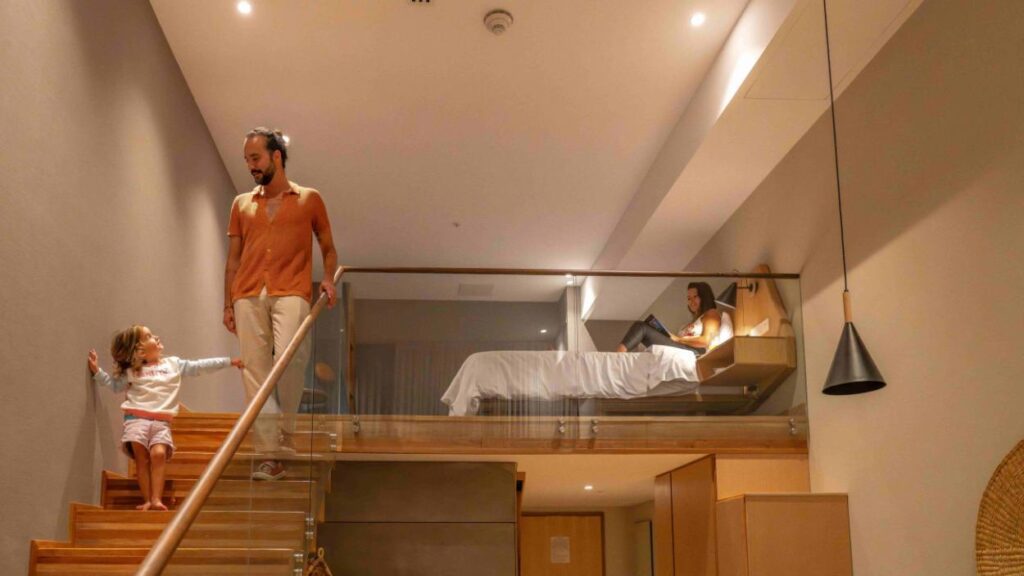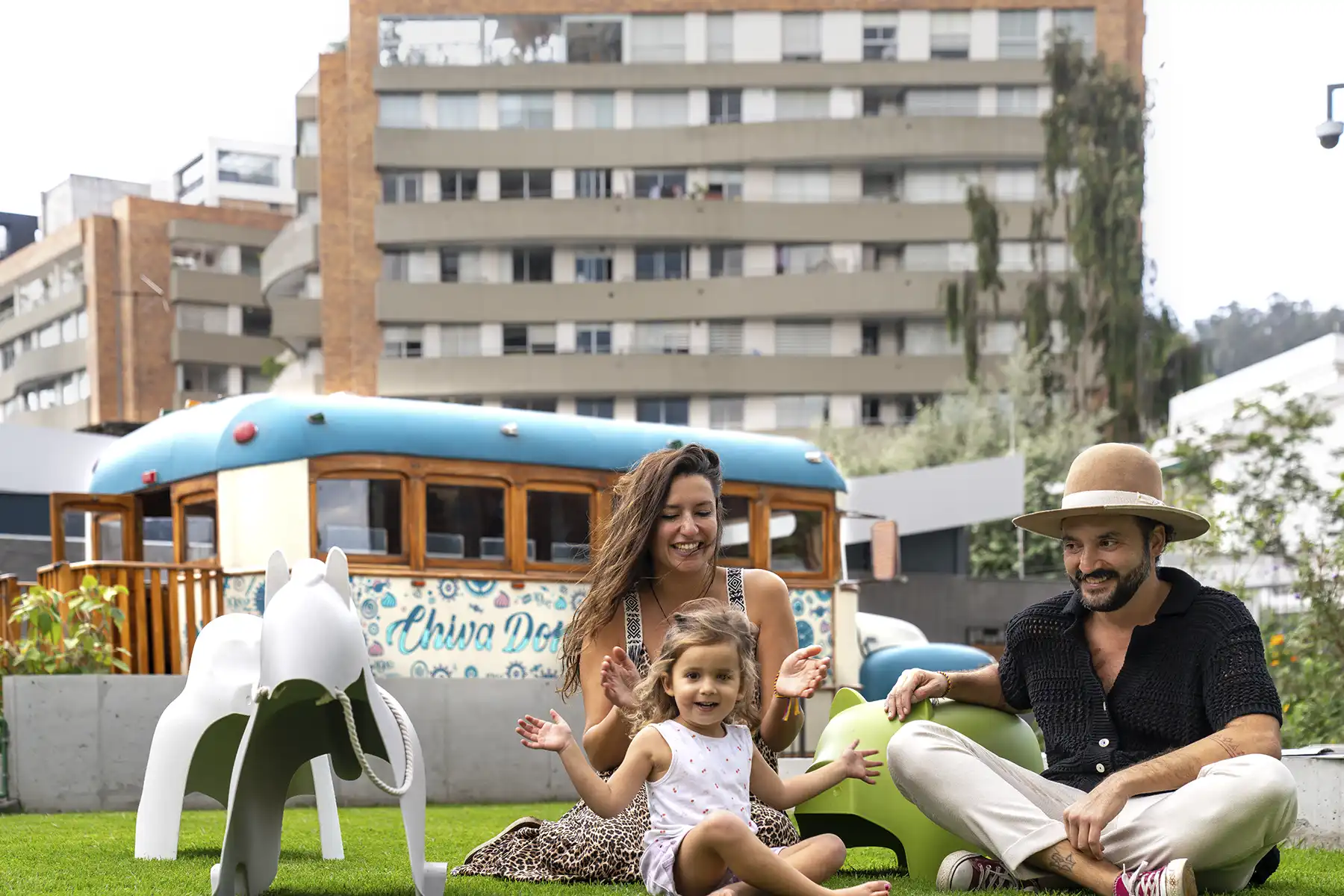Miguel never stopped playing. He did it fervently as a child, whether he was preparing elaborate scripts to perform epic adventure scenes with his friends or sketching designs for potential board games. Over time, Miguel became a connoisseur of game history, always seeking out lesser-known games he had discovered during his travels. To him, a traditional game was a treasure.
Miguel wasn’t much of a partygoer. His idea of gathering and fun was less rowdy. He liked to surround himself with close friends around a board and compete in a healthy manner. One day, upon entering the Alegra café at GO Quito Hotel, he discovered a Toad Game in the courtyard. It seemed like the perfect plan for carnival.
Discovering the Toad Game at GO Quito Hotel
Miguel knew that nowadays, finding a Toad Game could be as rare as finding a classic foosball table or a dartboard: the artisanal design, the wood, and above all, the memory of his grandparents competing for hours in an old house in Guaranda. It’s a game from another time, a tradition of precision where the objective is to toss as many tokens (or metal rings) as possible into the holes around a gaping metal toad. According to legend, this game was invented to entertain Incan royalty. Why a toad? Because it was believed that this animal possessed magical powers and could grant wishes.

Recalling carnival traditions.
For his carnival plans, Miguel preferred to pay tribute to his Guarandan grandparents by playing Toad rather than engaging in foam, talcum powder, or egg throwing—a carnival tradition he nonetheless cherished. He held very fond memories of the Carnival of Guaranda, one of Ecuador’s largest festivals and an event that has made the Andean city famous. So much so that in 1999, it was declared a cultural heritage of Ecuador. Miguel preferred to play but didn’t forget the precessions, the traditional dances, and even the Pájaro Azul aguardiente that his grandparents savored with mischief.
The Chiva Don Otto at Alegra.
When gathering with his closest friends for Carnival, he could also spend time in the Chiva Don Otto, another feature of the Alegra courtyard. Years ago, it had been a timber truck whose owner unloaded the wood at night to reload it in the early hours, as if the weight prevented the old transport from sleeping. That care could be felt in every corner. Now it was one of the hotel’s havens, a more intimate space restored with wood-paneled interiors, where Miguel and his friends could sit after playing. Miguel enjoyed the smell of wood and, inside the Chiva, he remembered the bus rides they took to Guaranda to visit his grandparents.
He sat inside for a while as his friends finished a round of Toad. He felt the leather of the upholstered seats and the wood covering the walls. Encounters like these, for playing, transported him to carnival and his family stories. Encounters like these, for playing, made him happy.
We invite you to celebrate carnival with us at Alegra Café in GO Quito Hotel.



